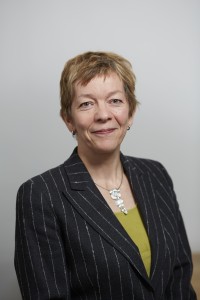For the past 9 months I’ve been part of Locality’s Commission into the Future of Localism. The original remit of the Commission was to gather evidence about the use and impact of the various community rights that were introduced as part of the Localism Act of 2011, which were aimed at shifting power away from central government and towards local communities.
The Commission held public meetings around the country and it soon became clear that despite the positive intentions of the Localism Act, it was not having the ambitious effect that was originally envisaged. There was frustration at all levels of decision-making about power not being devolved. We heard from local councils which were trying to bring about change but were stymied by national government overriding their decisions. We heard from parish councils which were frustrated by their borough or district council. And we heard from community groups with great ambitions, energy and capability which were simply not able to progress plans due to inertia, bureaucracy or outright hostility. It felt at all levels there was some powerful entity stalling progress and ambition.
Inevitably, among the frustrations there were the success stories, which showed how various decision-making bodies can work together, find ways to overcome barriers and develop great community-led initiatives and schemes. Sometimes local people actively usurped existing mechanisms. For instance Frome Town Council in Somerset now has 17 independent councillors who deliberately chose not to be affiliated to any political party in order to work collaboratively to provide practical improvements in the town.
But not one of these was achieved easily – the point was that barriers had to be overcome rather than a system that smoothly enabled positive change.
Towards the end of the Commission, Locality asked YouGov to carry out a poll to find out whether individual citizens felt they had control over decisions that affected their lives. The results were pretty depressing:
• 80% feel they have not much or no control over the decisions that affect the country
• 71% feel they have not much or no control over the decisions that affect their neighbourhood and local community
• 70% say that Brexit will give them either the same or even less control over the decisions that affect their local neighbourhood or community
The challenge now is how to address the findings of the Commission. We have some practical suggestions which can be found in our report here.
More specifically, we are also thinking at Halifax Opportunities Trust how we can ensure we are keeping true to our roots in Halifax and our charitable objective to tackle poverty via regeneration and community economic development. This includes increasing our membership to ensure we are locally governed and accountable. We consistently talk to the people that use our services to make sure we are providing what is wanted. We seek to recruit staff that live locally and therefore understand how life works in Calderdale. All our trustees live or work in the borough and many use or have used HOT services. We are creating more apprenticeships throughout HOT to provide practical employment progression routes for local people. Where possible, we buy locally and recently carried out an exercise that shows every £ spent by HOT generates £2.43 within the Calderdale economy. We have enabled over 300 jobs and £14m local GVA, purely through the two business centres that we run. We are nearing the end of lease negotiations with Calderdale council which will see the asset transfer of three buildings to HOT via 125 year leases. These are incredibly important assets for the Trust which will significantly improve our balance sheet and therefore our ability to embark on more ambitious plans for housing, wellbeing and tackling loneliness and isolation.
And it’s not just HOT. We have a really healthy civil society in Calderdale. We have community activists who have the drive and passion to get community initiatives started. We have a local authority which understands localism and is willing to share its assets with community-led schemes. We have elected members who care about the places they represent and know that they don’t have all the answers. We have a geography that lends itself to community self-sufficiency and we have a pride of place which drives a desire to make those places even better.
So despite the frustrations that the Commission uncovered, there are some places that are making the most of localism and I am very happy to be working for a great charity in one of those places.

